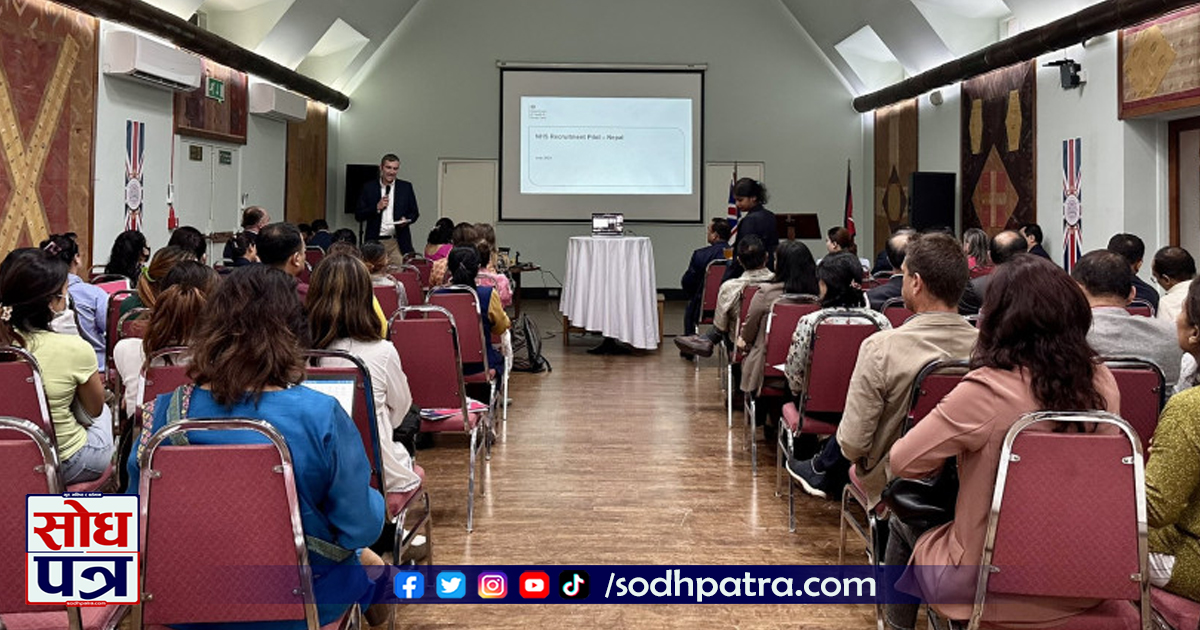The Ministry of Labour, Employment and Social Security of Nepal and the UK Department of Health and Social Care on Thursday launched a nursing recruitment pilot that will enable the recruitment of Nepali nurses to the UK National Health Service.
During the pilot, the UK will recruit up to 100 nursing professionals into the NHS through a competitive recruitment process, the British Embassy in Kathmandu and the Labour Ministry said in a joint statement.
The recruitment is a pilot initiative using a government-to-government process in which the Department of Foreign Employment and the Hampshire Hospitals Foundation Trust of the UK shall undertake the recruitment process.
The recruitment is a pilot initiative using a government-to-government process in which the Department of Foreign Employment and the Hampshire Hospitals Foundation Trust of the UK shall undertake the recruitment process.
As per the Memorandum of Understanding between both the governments, no employer, recruitment or placement agency or any entity shall engage in the recruitment process.
“The pilot is a continuation of the government of Nepal’s commitment towards a fair, dignified, and orderly migration process. Recruited Nepali nurses will be accorded the same rights, privileges, protections, and dignity as all healthcare professionals working in the UK,” reads the statement.
“The process is an ethical and managed recruitment process, based on the mutual needs of both countries. Both governments will learn from the pilot phase and take further action on whether to continue recruitment in the future.”
Interested applicants can access https://ferms.dofe.gov.np to begin the application process.
In August last year, Nepal and the United Kingdom signed a bilateral agreement on health partnership, opening the door for Nepali nurses to work in the island nation.



